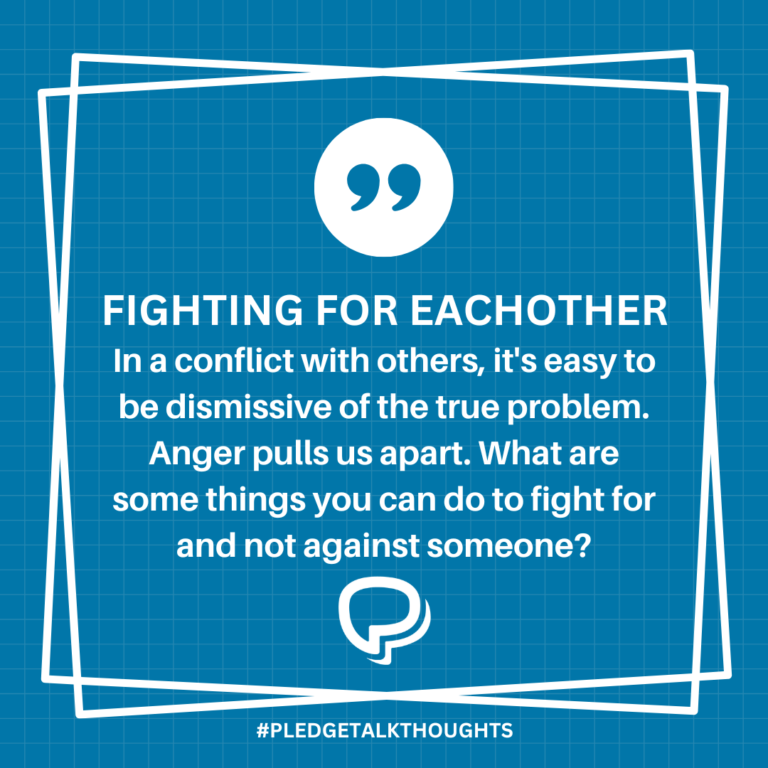Further thoughts on fighting FOR each other rather than AGAINST each other! 8/3/23
“What do I do when I am so mad at him (or her)?”
This is a common question I suspect we have all thought about at one time or another. Let’s start answering it by looking at what we typically do…
Your friend or spouse says something that hurts or makes you mad. The first thing that happens for most of us is we react oftentimes immediately out loud. But if we could put everything in slow motion we would more likely see that most of us first react in our heads. Emotions spring up and are accompanied by thoughts like:
- I can’t believe he said that!
- Why does she always say things that way?
- He can be so rude!
- She is always so disrespectful!
- They never listen!
- I hate it when they are like that!
- Or any of 100 other similar thoughts!!
THEN we either react out loud, roll our eyes and walk away, or shut down. And as we do, we have more emotions and thoughts like:
- This will never end.
- I hate my life!
- I’m done with this.
- I’m tired of dealing with this.
- They will never get it.
- Or any of 100 other similar thoughts again!
The battle is on. The conflict has started.
So what CAN we do when we are so mad at him (or her)?
We must first fight the inward battle if we hope to bring peace to the external relational battle. The inward battle must become the immediate focus. This is what that battle consists of:
- We need to recognize our internal ambivalence. At one end of the continuum, we want to react and hurt the person who has hurt us (hurt people hurt people) but on the other end, we don’t want to react or hurt them.
- We choose which ambivalent desire we want to be our focus. (I would suggest focusing on the end of the continuum that you don’t really want to react or be hurtful!)
- You choose to remind yourself who this person is to you – a friend, a mate, a child, a co-worker, etc – and that you want to do what you can to bring health to the relationship, not further destruction.
- You further remind yourself this person is not your enemy – it may feel like they are at the moment which is why you are so ready to defend and hurt them back – but they are in fact NOT your enemy.
- Now, if you are someone who believes in the devil as I do, you can believe HE is your enemy and do battle with him because his goal is to steal joy and peace from people, and even kill and destroy people’s entire lives and relationships!
- So we say to ourselves: No! I will NOT react back and hurt the other as I have been hurt! I will instead do whatever I can to move the relationship back towards health and life again, rather than death!
If we fight THROUGH the inward battle successfully, we will have the best chance at responding to the external relational battle in a healthy and helpful manner.
- We then take time – as much time as is needed – to consider what instead would move the relationship towards health and life again, rather than death. We might apologize. Or first ask the other person to tell us more why they are hurt or mad, and then apologize.
- We must seek to really hear what they want us to hear, and understand what THEY want us to understand – rather than listen to build the case for our defense!
- Then we show that we did in fact hear them by echoing what we heard them say and validate it by telling them their perspective makes sense or that we can understand how they came to their conclusion.
The outcome is the restoration of peace and greater connection!
RECAP: when anger arises in a relationship, learn to fight THOUGH your own inner battle until you are ready to speak only words that bring health and life into the relationship and therefore restore peace and connection!
Thoughts? Reactions? Questions? Leave a comment below!
Mark Oelze, Author/Creator of PLEDGEtalk





Leave a Reply
Want to join the discussion?Feel free to contribute!